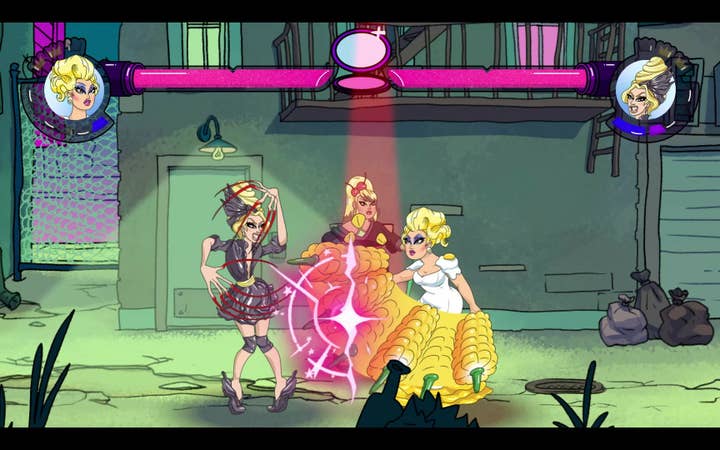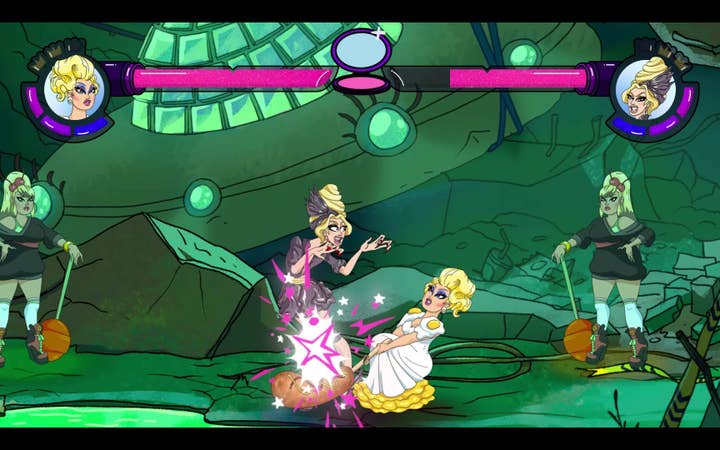Drag Her, a fighting game featuring drag-themed characters, managed to achieve its crowdfunding targets but ultimately did not move forward to launch

In February 2022, Fighting Chance Games launched a Kickstarter campaign for their 2D hand-drawn fighting game, "Drag Her," featuring real-life drag performers. Although the campaign successfully reached its $69,000 goal, the developers announced on May 15, 2024, that the project had been terminated due to insufficient funds.
The disparity between achieving the Kickstarter objective and the subsequent financial struggle highlights a common issue faced by independent developers. Often, the initial funding aims to prove market interest rather than cover the complete development costs. Studio director Ian Ramsay admitted that failing to communicate this reality to backers was a significant oversight.
“For us, the Kickstarter was specifically an opportunity to be like, 'hey, there's a market for this’,” said Ramsay. The funding was intended to develop a polished vertical slice to attract further investments. Although the Kickstarter did open some doors, including grants, it ultimately was not enough to sustain development.
The game gained some visibility when showcased at the Evo fighting game tournament, where it hosted a small side competition and a 'Queen of Evo' pageant. Despite positive feedback, the development ceased long before, as the studio did not foresee a way to continue financially.
"I think it was the correct choice to have this as our little token to the world that you can still have fun with at no cost," Ramsay mentioned, referring to their decision to release the game's current build for free on Steam.

Originally, the game was designed to support drag artists during the COVID-19 pandemic when live events were on hold. However, none of the performers whose likenesses were used will receive royalties due to the project's cancellation. Ramsay reported that the artists were understanding and supportive, despite the outcome.
Behind-the-scenes struggles intensified when attempts to secure external funding from organizations and publishers, even those with progressive inclinations, fell through. The predominant feedback from potential investors pointed to genre fatigue, but Ramsay believed the resistance was due to the game’s all-femme, queer cast.
"Every person we met [to pitch to] was basically an old white dude. You knew the conversation wasn't going to go well if you had to explain what drag is," Ramsay said.
Even efforts to engage with publishers who focus on progressive content did not yield the needed financial support. While the indie development community showed affection and optimism for "Drag Her," financial backing was conspicuously absent.
“[Games] are far behind other mainstream media in terms of queer representation,” Ramsay added. The broader industry trend, marked by layoffs and reduced investment in independent projects, compounded the challenges.
Although the game had a positive reception at events and an enthusiastic community, these were not enough to ensure financial success. The struggle to fund "Drag Her" underscores the challenges of bringing overtly queer games to market in a still-evolving landscape for LGBT representation in gaming.
"They pulled up the sexual deviancy card so there were added insults on top of just calling us 'gay'," Ramsay noted.
The failure to secure investment, juxtaposed with public expressions of support, highlighted the discrepancies in the gaming industry's commitment to diverse representation versus financial realities. As "Drag Her" exits the stage, it leaves a poignant reminder of the hurdles that uniquely themed games still face.
"Every time the industry faces an economic downturn, diversity initiatives are usually among the first to be abandoned," he remarks. "For marginalized groups, including the LGBTQ+ community, the stakes are higher. It will be especially challenging for games that focus on queer experiences. Compared to other mainstream media like Netflix or films, our industry lags significantly in LGBTQ+ representation. The current demographics of the game publishing sector make it unlikely we'll see substantial change soon."
Despite these challenges, he urges other LGBTQ+ developers not to give up on their aspirations.
"Our story should not discourage others. I hope people continue to push boundaries because someone out there will find the perfect combination of genre and audience. Someone will connect with a publisher who truly understands their vision, and that will drive the industry forward. Persistence is key."
